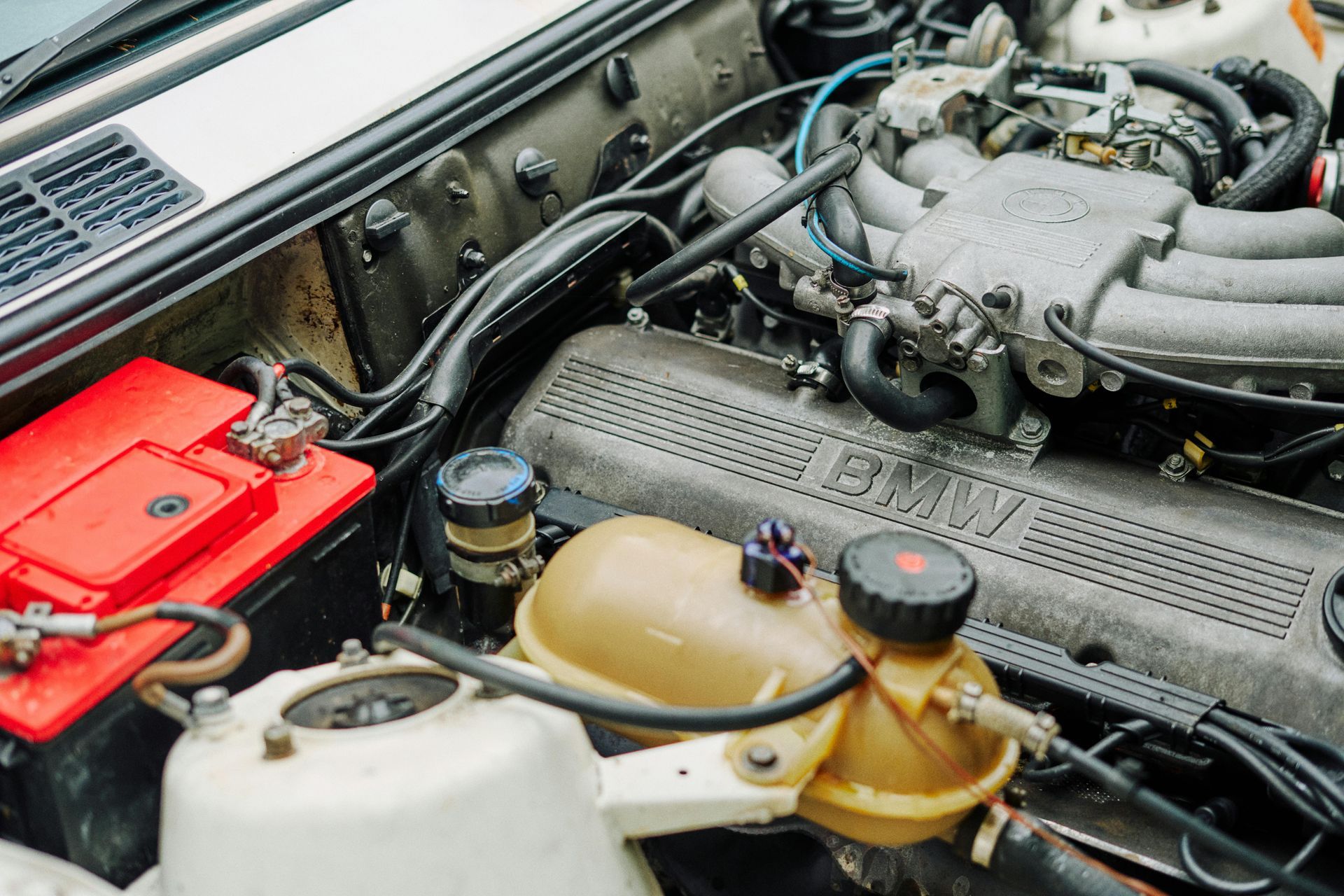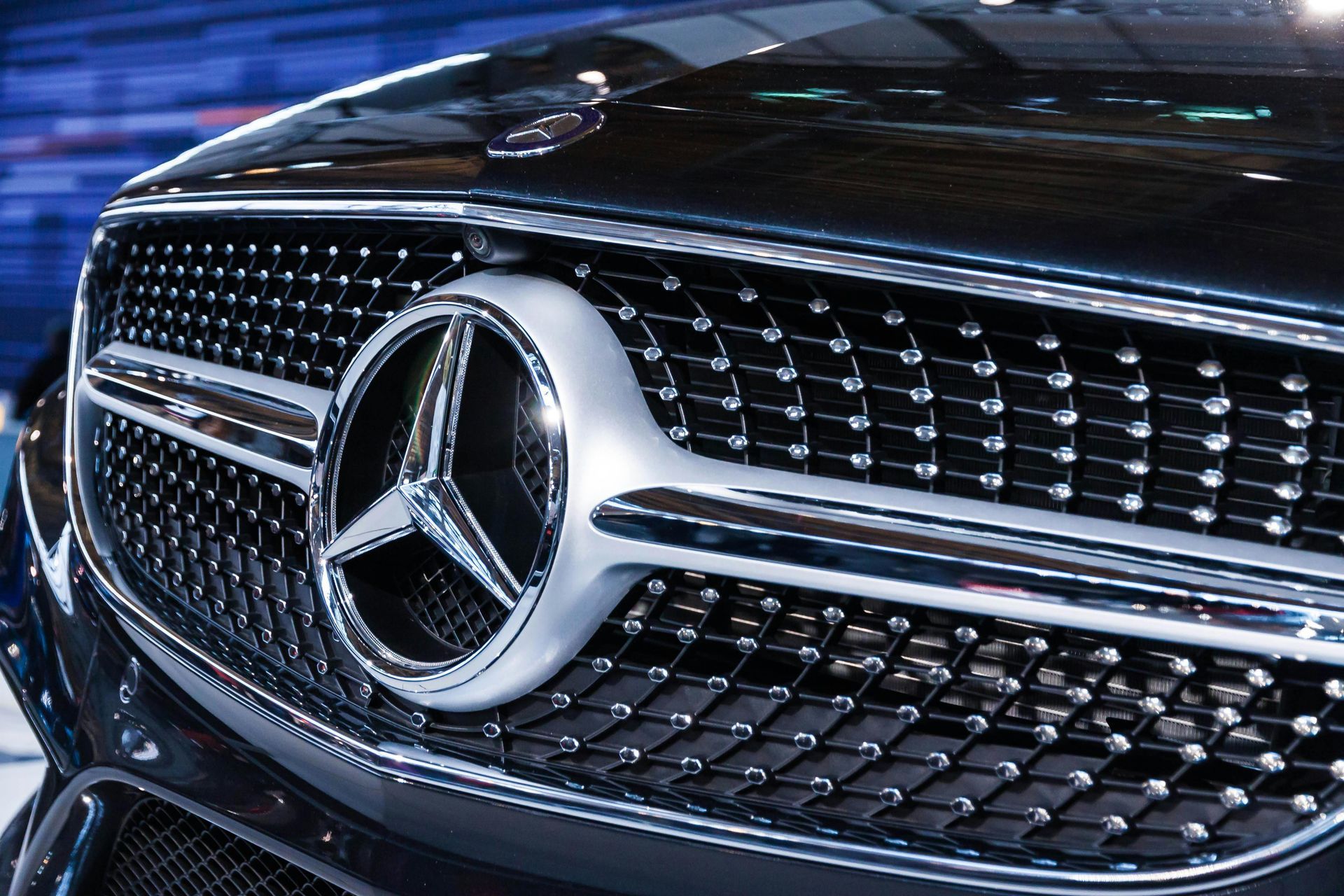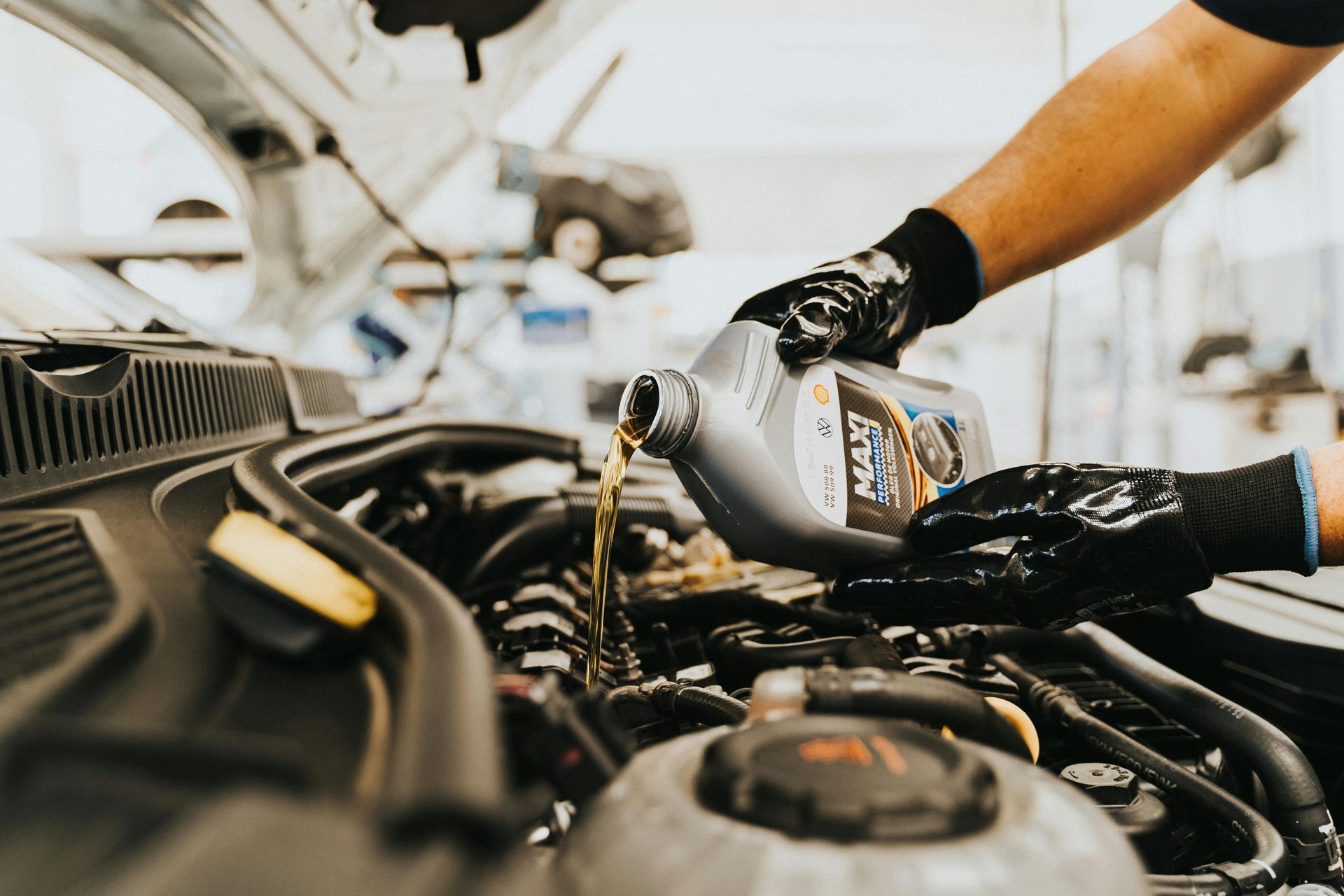Our Blog
Keep cool with expert air conditioning service in Houston at TMJ Bimmers Euro Auto Repair. Trust our skilled team for all your auto AC needs! Schedule online today.
Discover premier xHP transmission tuning in Houston at TMJ Bimmers. Optimize your vehicle's performance today. Visit us now!

If your BMW is showing slow cranking, random electrical faults, or battery warning messages, you might be thinking it’s time for a new battery. And while replacing a BMW battery is absolutely something you can do at home, there are several steps many DIYers overlook—steps that can make the difference between a flawless repair and ongoing electrical headaches. This guide walks you through how to diagnose the issue, choose the right type of battery, replace it correctly, and understand the most important final step: battery registration. Make Sure You Actually Need a New Battery Before rushing to buy a new battery, you should confirm that your BMW’s battery is truly the problem. BMW electrical systems are sophisticated, and issues can come from: A failing alternator A weak voltage regulator A bad IBS sensor (Intelligent Battery Sensor) Loose or corroded battery terminals A dying secondary battery (common on newer models) Signs often overlap, so the safest approach is to test the system: Measure battery voltage after sitting overnight Check charging voltage with the engine running Look for alternator fault codes Inspect for parasitic draws If your alternator is failing, a new battery won’t solve the problem—and may die again within weeks. Know That Many Newer BMWs Have Two Batteries This is something many DIYers don’t know: some BMWs, especially modern M cars, 7-series, hybrids, and vehicles with the auto start/stop function, have two batteries . One is the main battery, and the other is often a: Auxiliary battery Starter battery Backup power supply for stability control or electronic modules If the smaller auxiliary battery fails, your car may show battery warnings even though the main battery is healthy. Make sure you diagnose the right one before spending money. Only Use OE or AGM Batteries BMWs are extremely sensitive to battery type. Using a cheap aftermarket battery is one of the fastest ways to trigger electrical issues. Always choose: OE BMW batteries , or High-quality AGM (Absorbent Glass Mat) batteries from reputable brands like Exide, Varta, or Bosch Why AGM? Because BMW charging systems—especially those with brake regeneration and start/stop—are designed for batteries that can handle deep cycling and higher electrical demands. Avoid low-cost batteries at big box stores. They often do not meet BMW’s required specs and fail prematurely. How to Replace Your BMW Battery (DIY Steps) Replacing the battery is straightforward if you take your time. Here’s how to do it safely. Step 1: Locate the Battery Most BMWs have the battery: In the trunk, under the floor Under a side panel Under the rear seat (less common) Step 2: Prepare the Vehicle Turn everything off. Remove the key from the vehicle. Leave the doors unlocked to avoid getting locked out. Step 3: Disconnect the Old Battery Always disconnect in this order: Negative terminal Positive terminal Unbolt the battery hold-down bracket. Step 4: Remove the Battery BMW batteries are heavy—use proper lifting technique. Step 5: Install the New Battery Place it in the same orientation, secure it tightly, and reconnect terminals in reverse order: Positive Negative Step 6: Double-Check All Connections Loose terminals cause more BMW electrical issues than bad batteries do. At this point, the physical job is done. But the process is not complete. The Most Important Step: Battery Registration (Requires a Professional) Every BMW built in the past 15+ years requires battery registration whenever a battery is replaced. This is not optional and is the single biggest mistake DIYers make. What Battery Registration Is Your BMW tracks the battery’s age, health, charging cycles, voltage history, temperature exposure, and internal resistance. When you install a new battery, the car still thinks the old battery is installed unless you reset this data. Battery registration tells the vehicle: A new battery has been installed What its capacity is (Ah rating) Whether it’s AGM or standard How to adjust the alternator’s charging strategy Why Battery Registration Is Required BMWs use intelligent charging systems designed to extend battery life and optimize performance. The vehicle adjusts alternator output based on the age of the battery. Without battery registration: The alternator may overcharge the new battery The car may use the wrong charging profile Your new battery may be damaged within months Electrical modules may behave unpredictably IBS (Intelligent Battery Sensor) errors may appear Auto start/stop may malfunction You may see random warning lights or faults Skipping this step is one of the leading causes of premature BMW battery failure. What Happens If You Don’t Register the Battery You may experience: Faster battery degradation Alternator errors Overheating or undercharging Drivetrain or chassis stabilization warnings “Increased battery discharge” messages Interior electronics flickering or rebooting Start/stop system shutting off Multiple electrical module faults It doesn’t happen immediately, but it happens. Can You Do Battery Registration at Home? Not with generic OBD scanners. You need BMW-specific tools such as: ISTA+ (factory BMW software) Autologic Autel with BMW modules Launch X431 with BMW coding Foxwell NT510/530 BMW version This is why most DIYers replace the battery at home and then drive to a BMW specialist for the final step. Why You Should Trust a BMW Specialist Like TMJ Bimmers At TMJ Bimmers we will help you: Test and confirm the battery is actually the issue Identify whether your model has one or two batteries Ensure you buy the correct type and capacity Install the battery properly Register the battery using factory-level software Verify the alternator and IBS sensor are functioning Clear related fault codes Battery registration takes only a few minutes but prevents months of electrical issues.
Elevate your driving experience with Noelle Performance Tuning at TMJ Bimmers Euro Auto Repair in Houston, TX. Enhance power & efficiency. Visit us today!

Buying your first Mercedes-Benz is a milestone. The star on the hood is more than just a badge—it represents over a century of innovation, engineering, and luxury. The first time you close the solid, precise-feeling door, or glide down the highway with barely a whisper of road noise, you know you’re driving something special. But along with the excitement of ownership comes responsibility. A Mercedes isn’t just another car you fuel up and forget about. It’s a finely tuned machine, and like any machine built with precision, it needs proper care. Many first-time owners make the mistake of treating their Mercedes like any other vehicle, only to face big repair bills later. At TMJ Bimmers , we see this story all the time in Houston. A customer buys their dream Mercedes—maybe a C-Class sedan, maybe a GLE SUV for the family, maybe even the flagship S-Class. For the first year or two, everything feels perfect. Then, small issues begin to creep in: a warning light here, a rough idle there, a squeak in the brakes. Suddenly, the dream car feels more like a burden. The truth? Most of those headaches can be avoided with the right knowledge and maintenance. That’s why we’ve put together this guide—so first-time Mercedes owners in Houston can enjoy the experience without the stress. What Makes Mercedes Ownership Different The first thing to understand is that a Mercedes isn’t like the typical car you may have owned before. These vehicles are engineered with tighter tolerances, more advanced electronics, and more specialized materials. That means two things: The driving experience is unmatched. Few cars balance comfort, performance, and technology the way a Mercedes does. Neglect is expensive. Skip maintenance, and the systems that make your Mercedes so enjoyable can quickly turn into your biggest headache. Think of it like owning a luxury watch or a high-performance laptop. It delivers more—but it also requires more from you as an owner. The Mercedes Service Schedule: Service A & Service B If you’re new to Mercedes ownership, you’ve probably heard of Service A and Service B . This is Mercedes-Benz’s structured approach to maintenance. Instead of guessing what your car needs, Mercedes has a rotating plan to ensure everything gets attention at the right time. Service A usually comes at about 10,000 miles or 1 year. It’s the “basic” service: an oil change with synthetic oil, filter replacement, brake system check, tire inspection, and fluid top-offs. Think of it as your annual checkup. Service B happens around 20,000 miles or 2 years. It includes everything from Service A, but goes deeper: replacing the cabin air filter, flushing brake fluid, and more thorough inspections of suspension and electronics. These services repeat throughout your car’s life. If you keep up with them, your Mercedes will thank you with years of smooth performance. Skip them, and things wear out much faster than you’d expect. The Heart of the Matter: Oil and Fluids One of the first surprises new Mercedes owners face is just how picky these cars can be about oil and fluids. Unlike many mainstream cars that can run on different types of oil, Mercedes requires full-synthetic oil that meets their specific standards . It’s not about being fancy for the sake of it—it’s about protecting the engine. Mercedes engines often use turbochargers, direct injection, and other performance technologies that put higher demands on oil. The wrong oil can break down too quickly or leave deposits that damage the engine. The same goes for transmission fluid, coolant, and even windshield washer fluid. Using generic products might save a few dollars now, but it can create expensive problems later. At TMJ Bimmers, we only use OEM-approved fluids because we’ve seen firsthand how much of a difference it makes in longevity. Brakes: More Than Just Pads and Rotors Mercedes-Benz vehicles are built to stop as well as they go. Their brake systems are powerful, but they’re also more sensitive than many cars. For example, Mercedes recommends flushing brake fluid every two years, regardless of mileage. This is something many first-time owners don’t know. They’ll replace pads and rotors when they wear out, but they ignore the fluid. Over time, brake fluid absorbs moisture, which reduces braking power and corrodes internal components. Neglecting it can lead to failures in the ABS system—a repair that can cost thousands. The lesson? With a Mercedes, brake maintenance isn’t optional. It’s an essential part of keeping your car safe. Tires: The Foundation of Performance When you take your Mercedes out on Houston’s highways, you’ll notice how solid and stable it feels. That confidence comes largely from your tires. Many Mercedes models use performance tires or run-flat tires designed for grip and precision. But there’s a trade-off: they wear faster. Where a typical tire might last 50,000 miles, Mercedes tires may need replacing closer to 30,000, depending on how you drive. For new owners, this can be an unwelcome surprise. That’s why it’s important to: Check tire pressure monthly (heat and cooler temps cause fluctuations). Rotate your tires regularly. Inspect for uneven wear—if you see it, you may need an alignment. Think of tires as part of your Mercedes’ performance package. Treat them well, and your car will handle like it was designed to. Electronics: The Hidden Complexity One of the joys of owning a Mercedes is the technology: adaptive cruise control, lane-keeping systems, advanced infotainment, and countless sensors working behind the scenes. But with great technology comes… warning lights. Lots of them. A weak battery, for example, might not just cause slow starts. It could trigger multiple warning lights across your dashboard. That’s because modern Mercedes vehicles rely heavily on electronic communication between systems. For first-time owners, this can be intimidating. A single light might make it seem like the whole car is falling apart. The truth is usually simpler—but it requires the right diagnostic tools to pinpoint. That’s where having a trusted Mercedes specialist like TMJ Bimmers matters. We use factory-level diagnostics to get to the root of the issue quickly, instead of throwing parts at the problem. Common Mistakes First-Time Mercedes Owners Make We’ve worked with countless Mercedes owners in Houston, and we’ve noticed some common patterns among first-timers: They treat it like a regular car and delay Service A or B. They go to general repair shops or quick lube oil change places that don’t understand Mercedes requirements. They ignore small warning lights , which grow into big problems. They buy cheap aftermarket parts to save money, only to replace them again when they fail early. They forget about transmission service , assuming it’s “lifetime fluid.” (It’s not.) Avoiding these mistakes will save you thousands over the life of the car. What Maintenance Looks Like Over Time Let’s zoom out and look at a typical Mercedes maintenance journey for a new owner: Year 1 (Service A): Synthetic oil, brake inspection, fluids. Year 2 (Service B): Brake fluid flush, cabin air filter, deeper inspections. Year 3–4: Transmission fluid and filter service, spark plugs on certain models. Year 5+: Coolant flush, engine air filter, belts and pulleys. It’s a rhythm, and once you understand it, it’s easy to plan for. Think of it as a health plan for your car—checkups that keep small issues from turning into big ones. Houston-Specific Ownership Tips Owning a Mercedes in Houston adds a few extra layers: Heat: Our summers are brutal. Heat shortens battery life, dries out rubber, and stresses the cooling system. Test your battery and hoses every fall. Traffic: Stop-and-go driving wears brakes and tires faster. Don’t be surprised if they need replacing sooner than the manual suggests. Rain & Humidity: Electronics don’t love moisture. Make sure seals and drains are clear to prevent leaks into sensitive areas. Holiday Road Trips: If you’re planning to head north for the holidays, have a pre-trip inspection. Cold climates bring challenges Houston drivers aren’t used to, like road salt and freezing temps. Cost of Ownership: Setting Expectations Here’s another question we hear often: “How much does it cost to maintain a Mercedes?” The honest answer: more than a Honda, less than most people fear—if you maintain it properly. Oil changes: $150–$250 Service A: $250–$400 Service B: $400–$600 Brake jobs: $500–$900 depending on model Transmission service: $300–$600 Yes, it’s an investment. But consider this: by maintaining your Mercedes, you preserve its value, avoid breakdowns, and enjoy a driving experience no mainstream car can match. Why TMJ Bimmers Is the Right Partner for Your Mercedes If you’re a first-time Mercedes owner in Houston, you don’t just need a mechanic—you need a specialist who understands European cars inside and out. At TMJ Bimmers, we: Use OEM-quality parts and fluids so your car performs as it should. Have factory-level diagnostics to decode even the trickiest warning lights. Offer personalized service at competitive rates—no dealership runaround. Care about your experience as much as your car’s performance. We’ve built our reputation on helping European car owners protect their investment while keeping maintenance approachable and stress-free. Our Final Thoughts Owning your first Mercedes should be exciting, not overwhelming. Yes, these cars require a little more attention than your average vehicle—but that’s because they’re capable of so much more. Treat your Mercedes like the precision machine it is. Stay on top of Service A and Service B. Use the right fluids and parts. Pay attention to the little things before they become big. And most importantly, work with a shop that knows Mercedes. Do that, and you’ll enjoy everything that makes the three-pointed star so iconic: performance, safety, comfort, and style that never gets old. Ready to Care for Your Mercedes the Right Way? If you’re a first-time Mercedes owner in Houston, TMJ Bimmers is here to guide you every step of the way. Whether it’s your first Service A or a major repair, our team has the tools, training, and passion to keep your Mercedes running like new. 📞 Call us today 📍 Visit us in Houston 🌐 tmjbimmers.com Your dream car deserves expert care. At TMJ Bimmers, that’s exactly what you’ll get.
Ensure your vehicle's AC is running efficiently with TMJ Bimmers Euro Auto Repair in Houston. Expert service and maintenance. Visit us today!

As summer winds down and Houston heads into the cooler months, it’s the perfect time to think about seasonal maintenance for your BMW. While fall in Texas isn’t as harsh as in northern states, the shift from blazing summer heat to cooler mornings can still create challenges for your vehicle. Rainy weather, shorter days, and the upcoming holiday travel season all put extra demands on your BMW’s systems. At TMJ Bimmers , Houston’s trusted independent BMW and European car repair shop, we help drivers prepare for seasonal changes so their vehicles run smoothly and safely year-round. If you want to protect your investment, prevent breakdowns, and enjoy the full performance your BMW was engineered to deliver, here’s the ultimate fall maintenance checklist . Why Fall Maintenance Matters for BMWs BMWs are precision-engineered vehicles with advanced electronics, tightly tuned engines, and performance-driven components. That’s what makes them such a joy to drive—but it also means they can be sensitive to temperature changes and deferred maintenance. In Houston, fall brings: Cooler mornings that strain your battery. Heavier rainfall that demands good tires, wipers, and brakes. Holiday travel that puts extra miles on your car. The first chance to recover from the stress of summer heat on fluids, belts, and cooling systems. By addressing potential issues in the fall, you can avoid inconvenient breakdowns, costly repairs, and stressful surprises when you’re heading out for a family holiday road trip. 1. Test Your Battery & Charging System Batteries often fail when the temperature drops—even if Houston rarely sees freezing weather. Cold starts demand more power, and BMWs are packed with electronics that rely on a strong, healthy battery. Give TMJ Bimmers a call to schedule a battery health check which includes: Testing the battery’s voltage and load capacity. Many failures come without warning. Checking the alternator and charging system. Weak charging can cause slow starts and dash warning lights. Inspecting for corrosion. Battery terminals should be clean and tight. Replacing if necessary. Most BMW batteries last 4–5 years; after that, it’s a gamble. At TMJ Bimmers, we warranty our batteries under our 4 year / 44 mile warranty, using only. And, we use diagnostic tools that communicate directly with your BMW’s system, ensuring that any battery replacement is properly registered to your vehicle. 2. Protect Your Engine with Coolant & Antifreeze Houston’s summer heat can take a toll on your cooling system. As fall begins, it’s smart to check your coolant, not just for proper levels, but also for protection against corrosion and winter temps. Coolant flush. Old coolant loses its ability to protect aluminum engine components. BMW-approved antifreeze. Never mix universal coolant with BMW-specific formulas—doing so can lead to costly damage. Hose inspection. Over time, rubber hoses expand in the heat and contract in cooler weather, leading to cracks or leaks. A cooling system service now helps prevent overheating, especially if you’re planning long drives for Thanksgiving or Christmas. 3. Tires & Alignment for Wet Roads Fall in Houston often means heavy rain, wet leaves on the pavement, and the occasional early cold snap. Your tires are the only thing between you and the road, so don’t take them for granted. Tread depth. BMW recommends at least 4/32" tread depth for safe wet-weather driving. Air pressure. Tire pressure drops as temperatures fall—underinflated tires reduce fuel economy and traction and increase uneven tire wear. Alignment check. Misaligned wheels cause uneven tire wear and poor handling. Consider seasonal tires. If you’re traveling north during the holidays, all-season or winter tires provide extra safety. We recommend having your tires rotated and balanced during your fall service to extend their life and improve ride quality. 4. Brake System Inspection Rain, wet leaves, and slick roads can double your stopping distance in fall conditions. BMW brake systems are highly responsive, but they need regular care to stay that way. Inspect pads and rotors. Thin pads or warped rotors reduce braking performance. Check brake fluid. BMW recommends flushing brake fluid every 2 years—it absorbs moisture, which reduces braking effectiveness and corrodes internal components. Listen for warning signs. Squeaking, grinding, or a soft pedal are all signs that service is due. 5. Heating, Defrost, and Comfort Systems It might not get freezing in Houston often, but when the first chilly morning hits, you’ll want your heater, defrosters, and comfort systems working properly. Test the HVAC system. Make sure the cabin heats up quickly and air flows strong. Check heated seats and steering wheel. Small luxuries make winter driving more comfortable. Inspect defrosters. Foggy windshields can be dangerous in early morning commutes. 6. Wipers & Washer Fluid Clear visibility is one of the most important safety factors for fall driving. Heavy rainstorms are common in Houston this time of year, and streaking wipers make it nearly impossible to see. Replace blades. BMW recommends changing wipers annually, but Houston heat often wears them out sooner. Check washer fluid. Switch to a formula with freeze protection if you’ll be driving out of state. Inspect washer nozzles. Clogged nozzles can be cleaned easily during service. 7. Oil Change & Preventive Maintenance If you’re due for an oil change, fall is the time to get it done. BMW engines are engineered for high performance, and clean, high-quality synthetic oil is essential for smooth operation. Synthetic oil. Keeps viscosity stable in cooler temps. Filter replacement. Traps dirt and debris that could damage your engine. Check all fluids. Transmission, power steering, differential, and windshield washer fluid should be topped off or replaced if needed. Doing this before holiday travel ensures your engine is protected during long drives. 8. Belts, Pulleys, and Rubber Components Rubber parts harden and crack as temperatures drop. Belts and pulleys that looked fine in August can fail by December. Inspect the serpentine belt. This drives critical components like the alternator and water pump. Listen for squealing. A high-pitched squeal at startup often means belt wear. Replace before failure. A snapped belt can leave you stranded on the roadside. 9. Undercarriage Inspection & Rust Prevention Houston drivers don’t usually deal with road salt, but many BMW owners travel during the holidays. Exposure to salt and grime can quickly corrode the undercarriage, exhaust, and brake lines. Inspect the undercarriage. Look for early signs of rust or damage. Protective coatings. Ask about preventive treatments before winter trips. 10. Build an Emergency Kit Even though Houston winters are mild, being prepared is smart. Keep an emergency kit in your BMW: Jumper cables or portable jump starter Tire inflator or sealant Blanket and gloves Flashlight with extra batteries Bottled water and snacks This small step ensures you’re never caught off guard. Why Choose TMJ Bimmers for Fall Maintenance? TMJ Bimmers is Houston’s independent BMW and European car repair shop. We offer dealership-level expertise without dealership prices, and we understand the unique needs of BMWs in Houston’s climate. Our technicians use BMW-specific diagnostic equipment, OEM-quality parts, and years of hands-on experience to ensure your car gets the care it deserves. Whether it’s a quick seasonal checkup or a complete fall maintenance package, we’ll keep your ultimate driving machine in top condition. Schedule Your Fall BMW Service Today Fall is the perfect time to prepare your BMW for safe, reliable driving through the cooler months and busy holiday season. Don’t wait until a dead battery, worn brakes, or a coolant leak interrupts your plans. 📞 Call TMJ Bimmers today to schedule your fall maintenance service, (713) 384-2273 ? ? Conveniently located in Houston, TX 🌐 tmjbimmers.com Your BMW was engineered to perform. Let TMJ Bimmers help you protect that performance all season long.

In 2025, whether you’re filling up at the gas station, shopping for groceries, or scheduling a service appointment, one thing is clear: everything costs more than it used to . For owners of high-end vehicles like Mercedes-Benz, the price jump can feel even sharper. With their advanced engineering, cutting-edge technology, and luxury features, these vehicles are incredible to drive — but they can be expensive to repair when something goes wrong. At TMJ Bimmers , Houston’s trusted European car repair shop, we specialize in keeping Mercedes vehicles in top shape without the dealership-level price tag. We’ve seen firsthand that the smartest way to fight back against rising automotive costs is proactive, consistent maintenance . This isn’t just a shop slogan — it’s a financially sound approach backed by real-world examples. In this article, we’ll break down: Why maintenance is more important than ever in today’s economy. How the cost of maintaining your Mercedes compares to repairing it after a breakdown. The financial pros and cons of maintaining your current car versus buying new. Practical tips to keep your Mercedes performing like new for years to come. Why Maintenance Matters More in 2025 Mercedes-Benz vehicles are built with exceptional precision — but that precision comes with complexity. As technology advances, cars have become rolling computers, with sensors, modules, and electronics controlling nearly every system. That means when something fails, replacement parts and labor can be costly . Rising Parts Costs From advanced LED headlight assemblies to intricate suspension components like AIRMATIC air struts, Mercedes parts have become more expensive due to supply chain changes, increased material costs, and the complexity of the parts themselves. Specialized Labor Not every mechanic can work on a Mercedes. These cars require factory-level diagnostic tools, model-specific knowledge, and meticulous attention to detail . Highly trained technicians are worth every penny — but those pennies add up quickly if the work is unplanned. Unplanned Repairs Hurt Your Wallet More A simple maintenance service, like changing brake pads, might cost a few hundred dollars if handled on schedule. Delay it too long, and you could face rotor replacement, sensor damage, or caliper issues — easily tripling the bill. Maintenance vs. Repair: The Cost Reality Think of your Mercedes like your health — regular checkups cost far less than emergency surgery. Here’s a side-by-side look at common services for Mercedes-Benz owners in Houston:
Discover expert battery servicing at TMJ Bimmers Euro Auto Repair in Houston, TX. Ensure reliable performance with our specialized care. Schedule an online appointment now!







